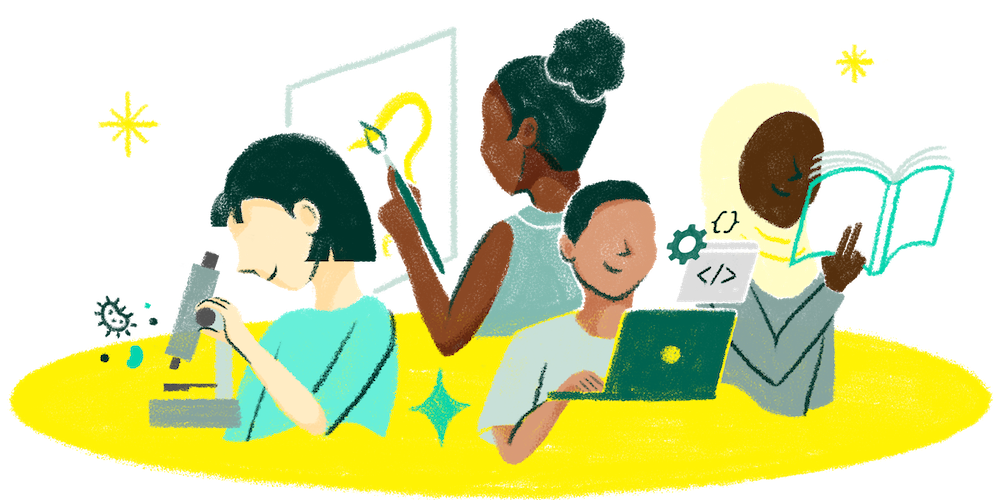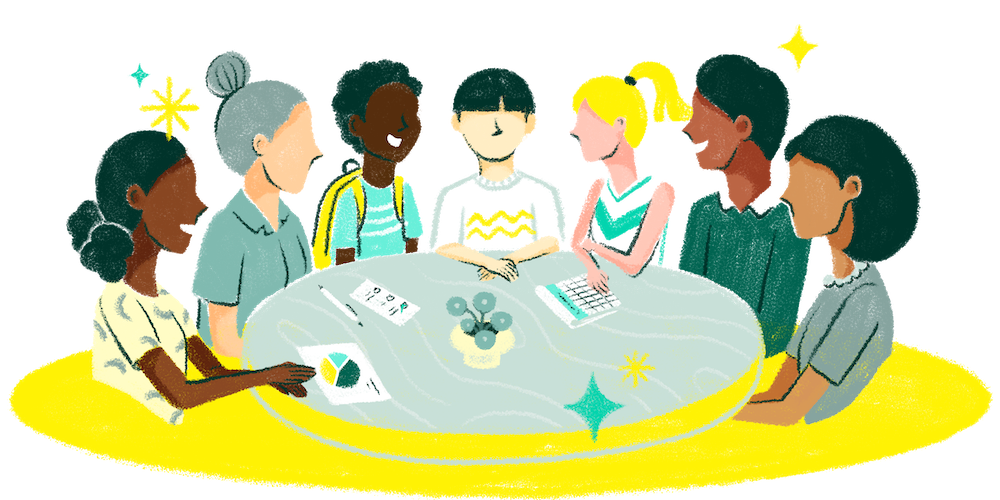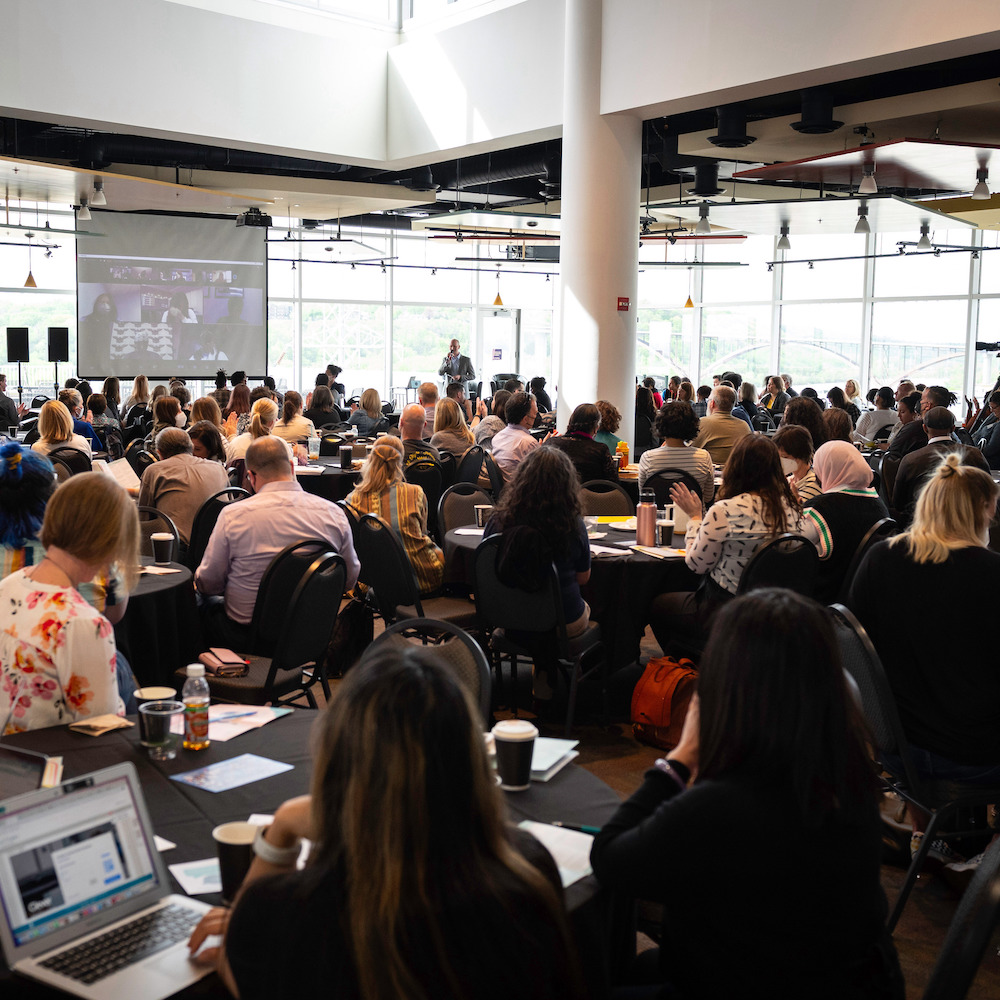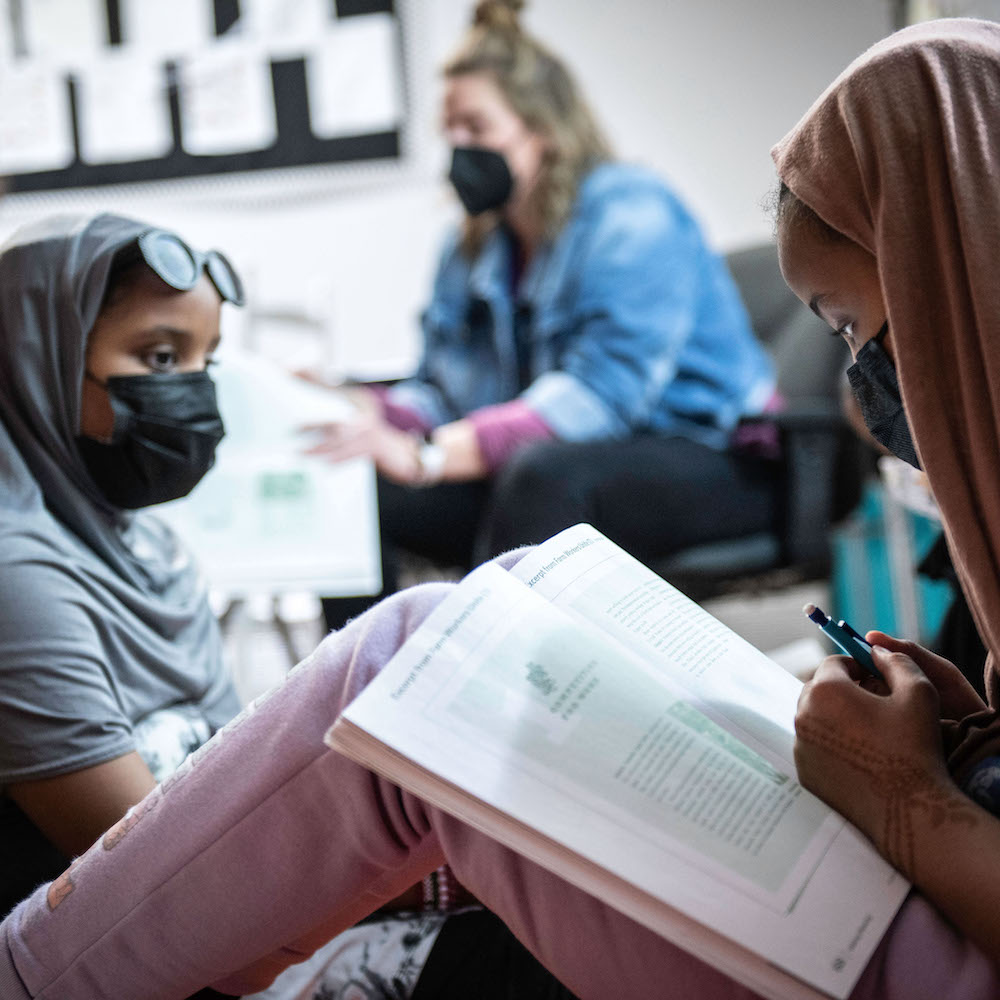Education must help students find their unique contribution to a more thriving and just 21st-century world—and develop the knowledge, skills, and mindsets they will need to do so.
To that end, we propose a new theory of change:
Learning must be student-centered
This purpose cannot be met with the one-size-fits-all, industrial-era designs common today. Rather, learning must equitably honor each student’s unique assets, interests, identities, and needs—and be designed with students’ voices at the table.

And so,

Schools must be places of agency and shared power
Student-centered learning does not thrive in rigid, hierarchical schools. Rather, decisions must be made closer to students—by educator teams collaboratively designing and running schools, and sharing power with students and families.
Therefore,
Policy must catalyze organic, community-led change.
Student-centered learning and shared power schools do not emerge from top-down reforms. Rather, policy must clear barriers, provide encouragement, and ensure autonomy for school communities to lead change.
In this space, bold innovators redesign learning and teaching. They prove that equitable change is possible, then the system changes organically over time, as others refine, replicate, adopt, and adapt their innovations.

From Theory to Action: Our Strategic Levers
We work to make these “must” statements a reality using three strategic levers:

Lever 1: Thought Leadership
Shifting Hearts and Minds to Spark Change
We contribute ideas, stories, research, and analysis to inspire and equip change-making educators and policymakers, through publications, events, and media outreach.


Lever 2: Policy Advocacy
Shifting Rules and Structure to Catalyze Change
We advance state and district policies that shift power to school communities, enable and encourage innovators, and create the conditions to scale equitable, student-centered learning.


Lever 3: Educator Support
Shifting Practice to Prove Change is Possible
We connect and support a core group of schools and educators practicing student-centered learning and shared power through convenings, resources, and direct support.

